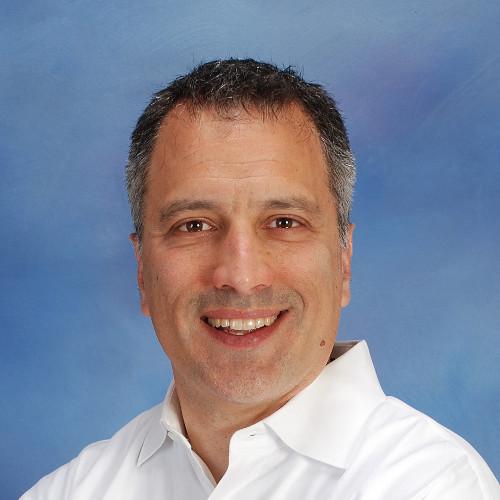
CMO Secrets: Jon Finegold

Welcome to CMO Secrets. This series features genuine insights and advice from today’s exceptional marketing leaders. Some names will be easily recognized and others may be new to you, but every single one will have been hand-picked for their experience and knowledge in the world of startups, technology and marketing. No pretense, jargon or PR spin here. We asked our most burning marketing questions, and they answered. Get their unfiltered thoughts and opinions and find out how these gurus rockstars marketers got to where they are today.
(Note: This content was previously published on Mautic.com in February 2019 and has been updated for accuracy.)
Today we welcome Jon Finegold. Jon joined Signiant as Chief Marketing Officer in 2017, bringing 20+ years of experience in launching and growing software companies. Jon was a pioneer in SaaS, helping launch OpenAir in 1999, one of the first B2B SaaS offerings which was acquired by NetSuite in 2008 (and later Oracle) and remains a leader in its category today. Jon also led the launch of where.com, a SaaS platform for mobile location aware advertising, which was acquired by Paypal in 2011. Jon was Chief Marketing Officer at Scratch Wireless from launch through acquisition and then founded and ran a consulting firm called Digital Jolt to offer part-time CMO services to early-stage technology companies. Jon began his career as a software engineer and brings a strong technical and analytical background to his work at Signiant. He has a B.Sc. in Mathematics from Allegheny College and a Masters from the MIT Sloan School of Management.
Tell us about Signiant and why you were excited to join them as Chief Marketing Officer.
When I look at any opportunity, three dimensions play an important role in the decision: 1. Does the company have a great team? 2. Am I excited about the product, the market and the problem being solved? And 3. Do I believe it has great growth potential? Signiant shined in all 3 dimensions. I was fortunate enough to consult there for a year prior to joining full time so I got to know the team very well and was well versed in the products, the market and the opportunity. Most of all, Signiant’s CEO, Margaret Craig, is one of the best I’ve ever worked with. It was a no-brainer for me to join the team and it’s been a great move.

What’s been your biggest marketing challenge at Signiant and what was your approach to tackle it?
When I joined Signiant, sales and marketing were very disconnected. We’ve worked hard to build a unified go-to-market approach which is proving to be very successful. In order to tackle that we had to collaborate and iterate in small chunks, build trust and listen to each other to develop a plan where our approach is tied together. We just had a record year, so that investment is proving to be well worth it.
Over the course of your career, what trends have you noticed in terms of the marketing programs that consistently perform best?
The hardest thing about marketing is getting in front of someone at the right time. Search plays a key role in understanding timing so finding ways to leverage search has always proven effective for me. The other way to improve the likelihood of being there at the right time is to be consistent. Finding creative ways to nurture leads and opportunities over a longer period of time is usually effective. That takes more patience and discipline, but when executed properly, it works.
Do you think there are any attitudes or beliefs in marketing that need to change? Outdated approaches or misunderstood insights?
I don’t think the fundamentals ever change. Put the right message in front of the right people at the right time. Many companies no longer have office phones, email inboxes are cluttered and social channels are becoming cesspools. So, it’s less about a change in beliefs and more about finding the right mediums to reach your audience.
If you could play professor for a semester leading a marketing class, who would you want in that class and what would the syllabus look like?
I think I would teach the class around integrated marketing and sales and would like to teach it to both marketers and sales leaders. It takes both, and too often the teams don’t understand each other or have misaligned goals. I’m not sure the syllabus, but I would focus on how to build common goals and a very connected sales and marketing process.
What’s one of your secret weapons when it comes to marketing?
I’m fond of search engine arbitrage. Trying to be out in front of emerging terms and phrases that are relevant to your audience and trying to think about what phrase someone would put into a search engine when they have a pain that you can solve. That has always worked well and it’s kind of a fun, ever-changing riddle to solve.
How did you end up in marketing after starting your career as a software engineer? And any specific skills you learned as a SE that you think have helped you as a marketer?
Starting my career as a software engineer has been very beneficial since I’ve spent my entire marketing career in tech, marketing software. Being able to understand technology and explain it to a variety of audiences is key and that experience has helped me turn technology into powerful stories. I’m probably too nerdy to market Budweiser, but in tech, it has served me well.
What’s the best career advice you ever received?
Your network is your most powerful asset.
What advice of your own would you like to pass on to up-and-coming marketers?
The best way to win an argument is with data. If you’re marketing in tech, it’s a data-driven world, so make sure you measure the right things and understand what it all means.
Time to Rant or Rave: What’s a marketing/business/technology topic that’s getting you fired up right now?
I’m sort of sick of social media. I know it’s not going away but most of those platforms are a mess. If you agree you can hit me on twitter @jonfinegold with #jonhatessocialmedia.
We talk a lot about open marketing: to us, there are very real and meaningful differences between open and closed systems, as well as open vs closed approaches to marketing and business in general. What does the idea of open marketing mean to you?
When you put in a system, whether its CRM, marketing automation or anything else, being locked in is the biggest risk. Open marketing, to me, means using systems that are easy to integrate with other systems and that allow you to get your data out in case you outgrow the platform. Most systems aren’t great on those fronts, but I like the concept of open marketing with that definition.

